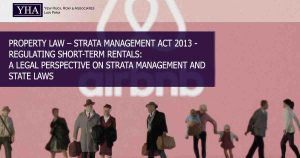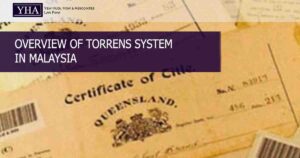
PROPERTY LAW – CHARGED BUT NOT IN CHARGE: COURT PROTECTS HOMEBUYERS OVER LENDERS IN LANDMARK RULING
In Champion Score Sdn Bhd v Mohd Sobri Chew bin Abdullah [2025] 3 MLJ 732, the Court of Appeal robustly affirmed that developers, having received full payment, become bare trustees without power to encumber properties. The Court decisively canceled an improperly created charge, emphasizing that financial institutions must diligently scrutinize developers’ authority under powers of attorney. This landmark decision highlight judicial commitment to protecting homebuyers, reinforcing statutory and public policy safeguards against developer misconduct.









